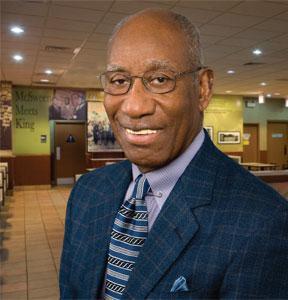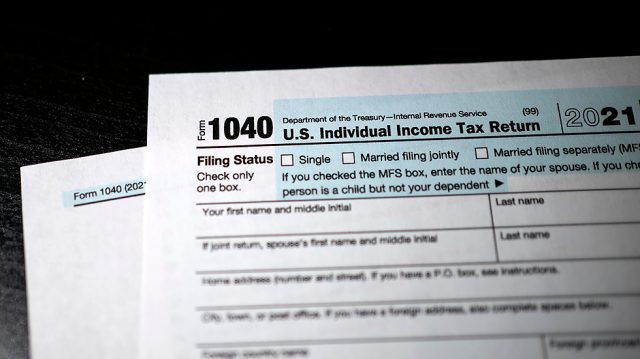WASHINGTON. D. C. — Michael Johnson and his wife wanted to expand the space in their Upper Arlington, Ohio home to accommodate their growing family when the pandemic kicked in. But the financial institutions from whom they sought home equity loans kept providing them with such low estimates for the value of their home in the Columbus suburbs that they wondered whether they’d be able to finance the project.
After reading an article about a Michigan couple who removed signs of their African American identity from their home to obtain a higher appraisal, Johnson performed a similar “whitewash.” He removed photographs of himself and his Black family from the premises and replaced them with pictures of his wife’s white family. He took their three children away from the house when the appraiser planned to arrive and let his wife handle the walk-through. The bank came back with a value nearly $225,000 higher than initially provided.
“It was one of the hardest things I’ve ever had to deal with, especially because my oldest son is 14,” Johnson told a panel on racially biased home appraisals that Housing and Urban Development Secretary Marcia Fudge assembled at the White House on Wednesday. “He knows. He goes to school. He has friends who are mixed race, so he knows exactly what that meant without me even having to tell him, and he was devastated. I never want to see him look at me that way again.”
Fudge says stories like Johnson’s are all too common. A September report from Freddie Mac found that appraisals for home purchases in majority-Black and majority-Latino neighborhoods were roughly twice as likely to result in a value below the amount a buyer was willing to pay for the property, compared to appraisals in predominantly white neighborhoods. A February study from Fannie Mae found that white-owned homes are much more likely than Black-owned homes to be appraised at values that exceed algorithmic predictions.
The former U.S. Congresswoman said at a White House event to unveil a new report she co-authored on how to end racial bias in the home appraisals that her home in Warrensville Heights is undervalued because she lives in a predominantly-Black community.
“I’m losing hundreds of thousands of dollars in equity in my home because of the bias in appraisal,” said Fudge, who co-chaired an Interagency Task Force on Property Appraisal and Valuation Equity (PAVE) that President Joe Biden set up on the 100th anniversary of the Tulsa Race Massacre as a way to help narrow the racial wealth gap and reinvest in communities that have been left behind by failed policies.
The report that Fudge’s task force released Wednesday with Vice President Kamala Harris calls for federal agencies to enhance oversight over the appraisal industry to identify better and redress discriminatory appraisals. It also encourages providing homeowners and homebuyers with information on effective steps they can take when they receive a lower- than expected valuation, cultivating better training among appraisers and making efforts to diversify the 97 percent white profession. A task force action plan lays out measures to remove unnecessary educational and experience requirements that make it difficult for underrepresented groups to become appraisers and a need to strengthen anti-bias, fair housing, and fair lending training of existing appraisers.
U.S. Sen. Sherrod Brown, an Ohio Democrat who chairs the Senate Committee on Banking, Housing, and Urban Affairs, applauded the report’s release. He plans to hold a hearing Thursday on strengthening oversight and equity in the appraisal process.
“Black and brown families face greater barriers to homeownership at every turn – including in the appraisal process,” said a statement from Brown. “The PAVE Task Force’s Action Plan lays out a clear path to identify and address systemic bias in appraisals, strengthen fair housing oversight, expand and diversify the appraiser workforce, and empower consumers to call out bias.
Speaking at the event to release the report, Harris said research has repeatedly shown that Black homeowners are more likely to have their homes undervalued than other homeowners, and homes in majority Black and majority Latino neighborhoods are almost twice as likely to be undervalued than homes in other neighborhoods. That undervaluing means Black and Latino homeowners must often pay more for their mortgages, receive less when they sell their homes and are less able to access home equity lines, she added.
In addition to providing a place to live, Harris said owning a home provides financial security and the potential to build intergenerational wealth. However, undervalued appraisals diminish that capacity.
“Systemic bias in home valuations .. widens the racial wealth gap and deepens the long-standing financial inequities that divide our communities,” Harris said. “Our administration will continue to fight to ensure that all homeowners and homebuyers in our nation are treated fairly.”
The action plan also calls for ensuring the algorithms that appraisers use don’t rely on biased data that could replicate past discrimination and developing an aggregated database of federal appraisal data to better study, understand, and address appraisal bias.
The task force’s co-chair, White House Domestic Policy Advisor Susan Rice, said the task force’s role is to call attention to bias and “put in place meaningful changes that will diversify the industry and hold this kind of behavior to account and give us and give … the public the tools to challenge these things and to say, ‘enough.'”
“This administration has decided that they are going to take on this challenge, and it is a big one,” said Fudge, who thanked Johnson and other homeowners who faced discriminatory appraisals for sharing their stories. “We know that racism permeates what we do every day. And I know that it’s hard. I know that it’s difficult, but we are ready to take on the battle.”
Fudge told the group they handled their problematic appraisals well.
“I am a somewhat quick-tempered person, and so, I don’t know what I would have done,” she said.
Johnson said his family got the loan it sought and that the work on his house wrapped up in December. He said his family pictures and personal effects that show he’s African American are back up on the wall. When the bank sent the same appraiser to the house to make sure the work was done, Johnson said he handled the walk-through himself.
“This was probably the most dehumanizing experience that I’ve ever been a part of,” Johnson said. “The silver lining is that I get to sit here today with all these wonderful people trying to make change.”
Read more:
Sen. Rob Portman says he’s undecided on Ketanji Brown Jackson’s Supreme Court nomination
CWRU prosthetic hand developer advises President Joe Biden on setting up new medical research agency
Time for a change? U.S. Senate agrees to make daylight saving time permanent
Report from Ohio Sen. Rob Portman says program to fight human trafficking has improper oversight
Northeast Ohio transit agencies get federal grants to improve bus service















